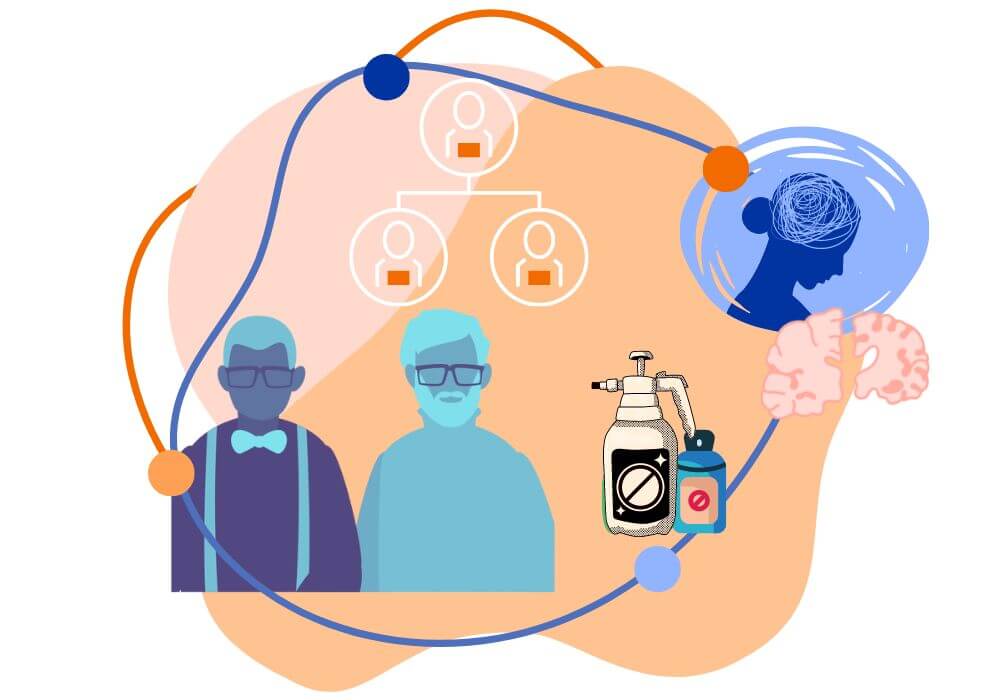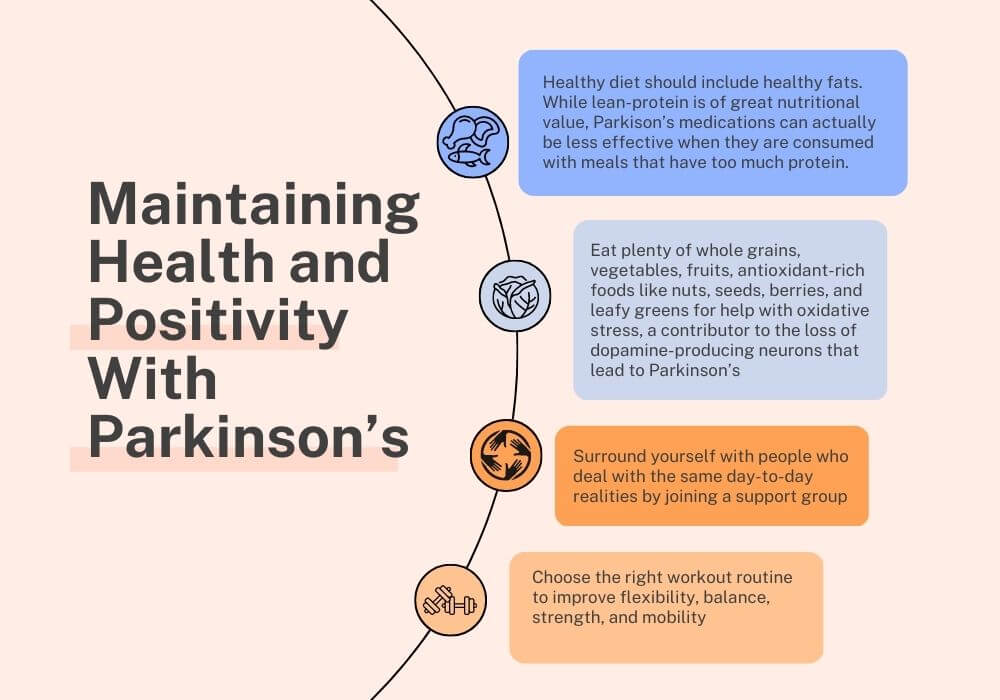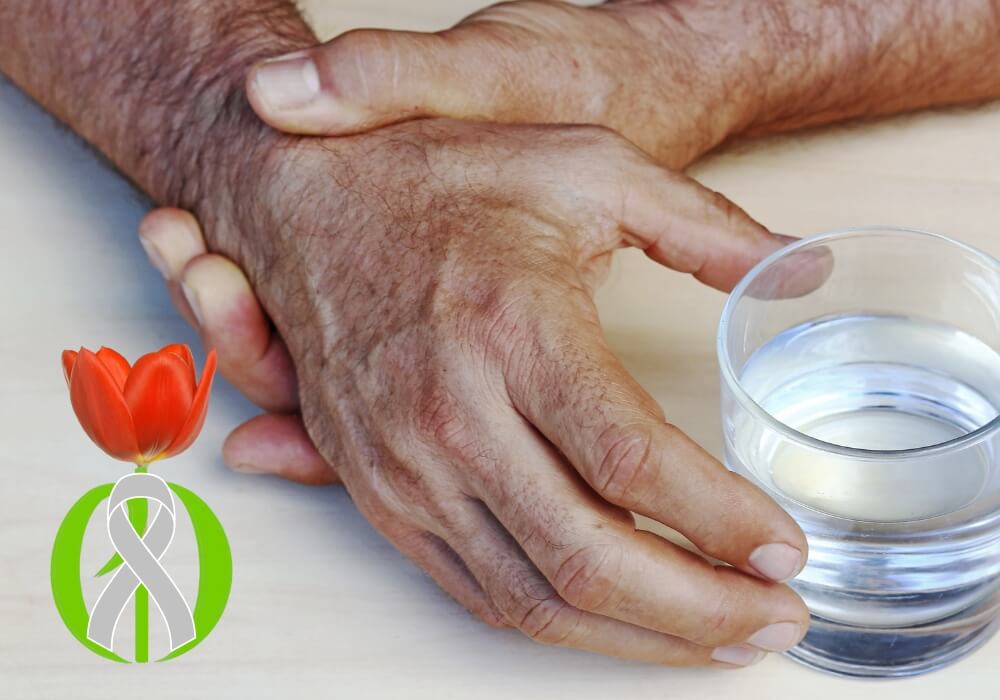Parkinson’s disease is a progressive neurological disorder that impacts your movement. It happens when the dopamine-producing neurons in your brain stop activating. When this occurs, the brain is unable to communicate with your muscles.
If you’ve been diagnosed with Parkinson’s, your reality will inevitably change. But you can still stay in good health and enjoy your life. Adjusting your daily habits can help you treat and lessen the symptoms of Parkinson’s. This can make a big difference in your comfort, health, and overall happiness. Let’s see how this can be made possible.
The Signs of Parkinson’s Disease You Need to Know
Tremors are one of the most distinct symptoms of Parkinson’s disease. They usually start off in the hands, spread to other limbs, and affect your writing abilities. But this isn’t the only symptom that comes with this disease. Let’s explain the most common side effects of Parkinson’s.
Bradykinesia and Hypokinesia
Bradykinesia and Hypokinesia are the impaired motor symptoms that derive from Parkinson’s disease. Bradykinesia limits your movement in everyday tasks, like dressing yourself or brushing your teeth. It can also impact the way you talk, making your voice sounds softer and more monotone, slurred, or mumbled. Hypokinesia affects the speed and extent to which you can move. It can cause things like decreased wing span and stiffness of muscles.
Gait and Balance Problems
Parkinson’s is often associated with the shuffling and freezing of your gate. These symptoms are a result of the stiffness, tremors, and alterations in posture that have already occurred with the disease. As a result, people with Parkinson’s are more prone to falling. Many people who experience these symptoms have to start walking with a cane. They may also undergo physical therapy and have to modify the layout of their homes to reduce risk of falling.
Non-Motor Issues
Decreased motor abilities are not the only unfortunate symptom of Parkinson’s. This disease can also come with loss of smell, sleep apnea, constipation, memory loss, and difficulty multitasking. And because of the emotional toll it takes on your life, depression and anxiety are not uncommon side effects. As these ailments are markers of many diseases, it’s important to recognize them along with the other symptoms we’ve discussed.
What Are the Causes and Risk Factors of Parkinson’s?
What causes Parkinson’s disease? Like many illnesses, there is no definite Parkinson’s disease cause. Both environmental and genetic factors can have an influence on its development. But the following can put you at a greater risk:
Age and Sex
Parkinson’s disease occurs most often in patients over the age of 50. Each year the risk increases more, especially when you hit your 80s. This is mostly because bodies become more susceptible to disease when they are older. Bodies also accumulate more cellular damage and yield less dopamine, which we know is the major determinant of Parkinson’s.
Men are more likely to develop this disease. Possible explanations could be that womens’ estrogen is a stronger assailant against Parkinson’s. This may also explain why women in menopause, whose estrogen production has halted, are at a greater risk for Parkinson’s. Another reason why men are more vulnerable is because they are more likely to develop vices like smoking that increase Parkinson’s risk.
Environmental Exposure

Toxins, pesticides, chemicals, and air pollution are elements that you should already be limiting contact with. But this is especially true if you want to avoid this disease. Specific pesticides like paraquat and rotenone, which are used for treating lakes and lawns, are linked to greater chances of Parkinson’s. Like many other risks, they damage neurons and tamper with the creation of dopamine. Because of their potential to accumulate in the brain, metals like lead and manganese can also be a risk.
Family History and Mutations
Having a family history of a disorder or illness often increases your chances of getting it. Though Parkinson’s is no exception, specific mutations can also up your risk. Here are some of the most prevalent mutations:
- SNCA: This is a protein that assembles within the brain and, when mutated, can lead to early onset Parkinson’s disease.
- LRRK2: This gene also creates proteins in the brain. And when mutated, LRRK2 can contribute to late onset Parkinson’s and brain cell damage.
- PINK1: This gene is responsible for regulating mitochondria, which produces energy in cells. When mitochondria doesn’t function properly, it can kill cells and lead to Parkinson’s disease.
- DJ-1: When this gene is mutated it can lead to cell damage, which subsequently puts you at a greater risk for Parkinson’s.
Luckily, doctor’s can do genetic testing to see if you have mutated versions of any of these cells. So if you have a family history of Parkinson’s, you may want to look into this.
Head Trauma
As neurology plays a big role in Parkinson’s, brain trauma is understandably a major risk factor for this disease. Like many of the mutations we’ve discussed, head injuries damage brain cells. This makes it hard to produce dopamine and control bodily movement. The more brain injuries you acquire throughout your life the more likely you are to develop Parkinson’s—that’s why it’s so important to wear a helmet! If you’ve had a number of concussions, you may want to consult a doctor.
Maintaining Health and Positivity With Parkinson’s

Living with Parkinson’s is just as much about remaining positive as it is about maintaining good health. This is made easier with a good support system, healthy diet, and regular exercise. Here’s how to implement vitality-improving habits into your life as a Parkinson’s patient.
Find the Right Type of Support
While having the support of loved ones is priceless, many people find solace in joining a support group with other people who have Parkinson’s. Surrounding yourself with people who deal with the same day-to-day realities that you do can be extremely therapeutic. Sharing stories and resources that have helped you on your journey can alleviate the stress and loneliness that often comes with having a disease. Ask your doctor if they can recommend a local support group or find friends through the online Parkinson’s community.
Choose the Right Diet
While maintaining good nutrition is beneficial to those with Parkinson’s, there’s not a specific diet for people with the disease. That being said, eating plenty of whole grains, vegetables, fruits, and healthy fats is recommended. Antioxidant-rich foods like nuts, seeds, berries, and leafy greens can also help with oxidative stress, a contributor to the loss of dopamine-producing neurons that lead to Parkinson’s. Getting plenty of fiber and hydration is also recommended. And while lean-protein is of great nutritional value, Parkinson’s medication can actually be less effective when consumed with meals that have too much protein. Knowing this, be sure to spread out your protein to many different meals a day.
Choose the Right Workout Routine
Exercise can be particularly beneficial to people with Parkinson’s because of its ability to improve flexibility, balance, strength, and mobility. Aerobic exercise is of course good for overall fitness. But resistance training like squats and lunges can target specific muscles that have been weakened by Parkinson’s. Obstacle courses, agility drills, and balance-related exercises such as yoga can also help with coordination that’s been lost.
Getting the Most Out of Life With Parkinson’s
Developing a positive outlook and habits are essential for living a fulfilling life with Parkinson’s. As is doing everything you can to limit your risks if you’ve never been diagnosed. Either way, you can live a healthy life and provide support to those who have contracted the disease with the tips you’ve learned today.
Individuals diagnosed with Parkinson’s can find additional aid in the form of medication. There are also many surgical options that may make living with Parkinson’s more manageable. Your doctor can evaluate your medical situation and find the best treatment for Parkinson’s disease.
